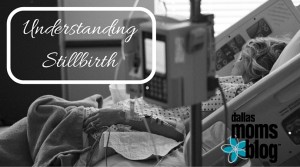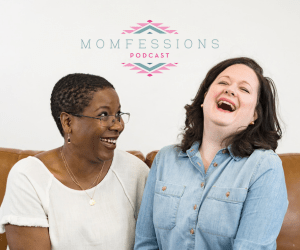Last summer, when I became pregnan t we were thrilled. Like most women, I was a bit nervous through the first trimester. I held my breath and felt the huge sigh of relief that comes with the start of the second trimester.
t we were thrilled. Like most women, I was a bit nervous through the first trimester. I held my breath and felt the huge sigh of relief that comes with the start of the second trimester.
Unfortunately, that relief was short lived. At 17 weeks, we found ourselves sitting in a perinatologist’s office. Suddenly, we were being educated on the stages of grief. Yes, you read that correctly. No one ever wants to be educated on the stages of grief. But having the person who will be delivering your baby describe the stages of grief is HARD. TO. TAKE.
The doctor explained that our baby had a fatal condition that would end in stillbirth. The next two months were a blur of weekly heartbeat checks and gut wrenching decisions about invasive testing.
While walking through this haze, we prayed and prayed for a miracle. We asked questions and learned to advocate for our baby. We googled – A LOT. But we also wanted to be prepared for what the doctors said was coming. Stillbirth.
At the time, I knew very little about stillbirth. I knew one or two families that experienced it, but I had never dare ask questions. I was lost and overwhelmed. I found myself turning to google (again) to find answers to my very scary questions.
While I wish this information did not need to be shared, the reality is that 1 in 160 pregnancies will end in stillbirth.
Here are the hard things I now know…
Funeral Home – You’ll be expected to make arrangements with a local funeral home before leaving the hospital. Our hospital gave us a list of places to contact. The cost associated with burial or cremation can vary widely, so you may want to call several locations to see what your options are. You’ll also receive a death certificate, but no birth certificate.
Making Memories – While your heart is breaking over this loss, it may be difficult to think clearly. Know that there are many ways to create memories with your baby after delivery. You may choose to do many or none of these things, depending on what you are comfortable with. We chose to hold, dress and take photographs of our baby. Other couples have chosen to bathe, read special books and have family come to meet their baby. Hand and/or footprints can be a sweet keepsake. If you have time before the baby’s birth, you may want to create a birth plan that will include how you want the time after delivery to go. There’s a non-profit called Now I Lay Me Down to Sleep that can come take professional photos of your baby at the hospital. Some hopistals provide tiny, handmade gowns to dress your baby in.
Breastmilk – Most women will produce breastmilk in the days following the birth. This is extremely painful with no baby to nurse. Before you leave the hospital, a lactation consultant can give you more information. Some women choose to let their milk dry out using ice or cabbage leaves. Others choose to pump their milk for donation or to use for another child.
Leaving the Hospital – This one hurts to think about. Although obvious in some ways, it took me by surprise. When it’s time to say a final goodbye to your baby, you’ll walk out the way you arrived. This means passing the huge nursery windows with newborns, seeing excited faces waiting for loved ones in the lobby, and you’ll probably sob quietly next to strangers in the elevator. Just keep walking. You can do it. It’ll be the worst and bravest thing you have ever done.
Family Planning – The topic of having more children after our loss came up much quicker than I had anticipated. Brace yourself for others’ questions and opinions about your family. But remember, it’s just that – YOUR family. Use this experience, to bond with your spouse by sharing your hurt, anger and fear about the future. Take one day at a time! Try not to let this experience rob you of the joy that comes with pregnancy.
Comments – A family member who also lost a child to stillbirth told me to prepare myself for hurtful comments from others. Some people have attempted to comfort us by telling us the positives to our loss. Of course, to us there are no positives, everything about this is devastating. Remember, those who love you are just trying to be of comfort and don’t know what to say. If you’re supporting a friend after pregnangcy or infant loss read these Dallas Moms Blog posts about what you can say and how you can help.
If you experience a fatal fetal diagnosis while pregnant and/or a stillbirth, don’t be afraid to talk about it. There’s a heaviness that comes with the word “stillbirth” and it often feels too painful, too uncomfortable or too scary to speak about. But we are in this together – you’re not alone.
Here’s where you can meet up to talk in the Dallas area.
M.E.N.D. (Mommies Enduring Neonatal Death) in DFW
Healing Matters Support Group at Medical Center of Plano
Compassionate Friends (Plano, Southlake, and Garland Chapters)
Caring Hearts at Texas Presbyterian Hospital of Dallas – 8200 Walnut Hill Lane, Dallas, TX (1st Tuesday of each Month, 7pm)














Thank you for being brave enough to write this. Praying for you!
Such a reminder of the many blessings we experience with a healthy and uneventful pregnancy. Thank you for sharing your experience, knowing that you relive those memories while doing so.